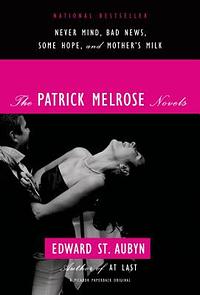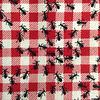Take a photo of a barcode or cover
141 reviews for:
The Patrick Melrose Novels: Never Mind, Bad News, Some Hope, Mother's Milk, and at Last
Edward St. Aubyn
141 reviews for:
The Patrick Melrose Novels: Never Mind, Bad News, Some Hope, Mother's Milk, and at Last
Edward St. Aubyn
challenging
emotional
reflective
medium-paced
Plot or Character Driven:
Character
Strong character development:
Yes
Loveable characters:
Yes
Diverse cast of characters:
No
Flaws of characters a main focus:
Yes
What "A Little Life" wishes it could be.
it's a testemant to my enjoyed exploration the book does that, in spite of my many biases against it and not really hopeful reading it, I still really, really liked it.
For a book that I took as long and poncy exploration of some super elite rich man who is sad, eugh the rich, it isn't something to say I planned to care for. Plus it being written by the rich. Like, even just name is eye-rolling. Still, I can't deny that I think it well worth the read, a good exploration, one to recommend, and one to come back to with age.
Mild comments of it is fucking long and I much preferred the last 2 books (Mother's Milk and At Last) but that's less criticsm and more the writing connects with me better on explorations and characters are harder to enjoy at the start. Still, they do feel necessary to read in whole to fully contextualise and enrichen the later books.
19/08/2025
it's a testemant to my enjoyed exploration the book does that, in spite of my many biases against it and not really hopeful reading it, I still really, really liked it.
For a book that I took as long and poncy exploration of some super elite rich man who is sad, eugh the rich, it isn't something to say I planned to care for. Plus it being written by the rich. Like, even just name is eye-rolling. Still, I can't deny that I think it well worth the read, a good exploration, one to recommend, and one to come back to with age.
Mild comments of it is fucking long and I much preferred the last 2 books (Mother's Milk and At Last) but that's less criticsm and more the writing connects with me better on explorations and characters are harder to enjoy at the start. Still, they do feel necessary to read in whole to fully contextualise and enrichen the later books.
19/08/2025
challenging
dark
emotional
funny
reflective
medium-paced
Plot or Character Driven:
Character
Strong character development:
Complicated
Loveable characters:
Complicated
Diverse cast of characters:
No
Flaws of characters a main focus:
Yes
I watched the adaptation a couple of years ago, I loved it. I felt sorry for Patrick Melrose for all of the miseries he must experienced in his life. So when I accidentally found this book in a used bookstore, I didn't hesitate to grab it. But, well, turns out, this book is one the most disturbing book I've read. I know from the series it is about addiction, rape, incest, and everything about the rich english snobs and racists, but the word crafting is just dull and tiring. The scriptwriter did an excellent job.
my overall rating is the (approximate) average of all 5. here’s what i rated each book individually:
- never mind- 3.5 ⭐️
- bad news- 4 ⭐️
- some hope- 4.5 ⭐️
- mother’s milk- 3 ⭐️
- at last- 3.5 ⭐️
challenging
dark
emotional
funny
hopeful
informative
inspiring
reflective
sad
tense
medium-paced
Plot or Character Driven:
Character
Strong character development:
Yes
Loveable characters:
Yes
Diverse cast of characters:
Complicated
Flaws of characters a main focus:
Yes
so reflective and beautiful and scary and torturous and just what i needed. its perfect. i love it so dearly. so so many layers and things to smile abiut and things to avert from and life to contemplate. so good
Moderate: Rape, Sexual assault, Suicidal thoughts
Minor: Racism
dark
reflective
slow-paced
Of the 5 novels , I think one was overdone and added little to the others , that’s why I decided on 4 stars . All 5 are beatifully written . A joy to read .
This book was so good in so many ways. It's definitely one of the best i've ever read. It builds better than anything else i've read. It's smart without being pretentious and hilarious and so completely honest and exposing about human nature and relationships/society/class (without being pointed or laced with an agenda) that you rarely see in writing. It's in my top 10 definitely.
challenging
dark
funny
reflective
sad
tense
slow-paced
Plot or Character Driven:
Character
Strong character development:
Yes
This is the most thorough character development I've ever read. Aubyn is a master at describing the nuance of experience.
challenging
dark
emotional
funny
hopeful
inspiring
reflective
sad
tense
medium-paced
Plot or Character Driven:
A mix
Strong character development:
Yes
Loveable characters:
Complicated
Diverse cast of characters:
Complicated
Flaws of characters a main focus:
Yes
I find that it is hard for me to articulate how deeply I am obsessed with this series.
Edward St. Aubyn's prose is hypnotic; it is beautiful and it is nauseating; it is exploitative and it is secretive at once.
Patrick Melrose being St. Aubyn's autobiographical caricature is a creative liberty that is executed flawlessly and the supplemental reading that I had done about St. Aubyn and his real life, about the reception of the five novels, and about filming the Showtime series only made me appreciate it all the more. I feel it would be impossible to come out of reading Patrick Melrose without a sense of awe for the sheer gravity the series possessed as a critique on class and family dynamics; as well as an exploration of abuse, addiction, and mental illness, especially amongst those who are so traditionally English.
There's an impressive cast of characters balanced across the series. Notably, some of my favorite chapters are from the perspective of Patrick's eldest son, Robert, as they so effortlessly capture the mystique of childhood (not to mention the chapters where Patrick himself is a child at Saint-Nazaire). There's even an entire chapter where an adult Patrick is having a crisis that is staged like a play — a brilliant format for St. Aubyn to choose for the occasion that I understood intimately.
As a consequence, this may remain one of the most influential works of my life. I only wish I could do right by it in a review.
Edward St. Aubyn's prose is hypnotic; it is beautiful and it is nauseating; it is exploitative and it is secretive at once.
Patrick Melrose being St. Aubyn's autobiographical caricature is a creative liberty that is executed flawlessly and the supplemental reading that I had done about St. Aubyn and his real life, about the reception of the five novels, and about filming the Showtime series only made me appreciate it all the more. I feel it would be impossible to come out of reading Patrick Melrose without a sense of awe for the sheer gravity the series possessed as a critique on class and family dynamics; as well as an exploration of abuse, addiction, and mental illness, especially amongst those who are so traditionally English.
There's an impressive cast of characters balanced across the series. Notably, some of my favorite chapters are from the perspective of Patrick's eldest son, Robert, as they so effortlessly capture the mystique of childhood (not to mention the chapters where Patrick himself is a child at Saint-Nazaire). There's even an entire chapter where an adult Patrick is having a crisis that is staged like a play — a brilliant format for St. Aubyn to choose for the occasion that I understood intimately.
As a consequence, this may remain one of the most influential works of my life. I only wish I could do right by it in a review.



